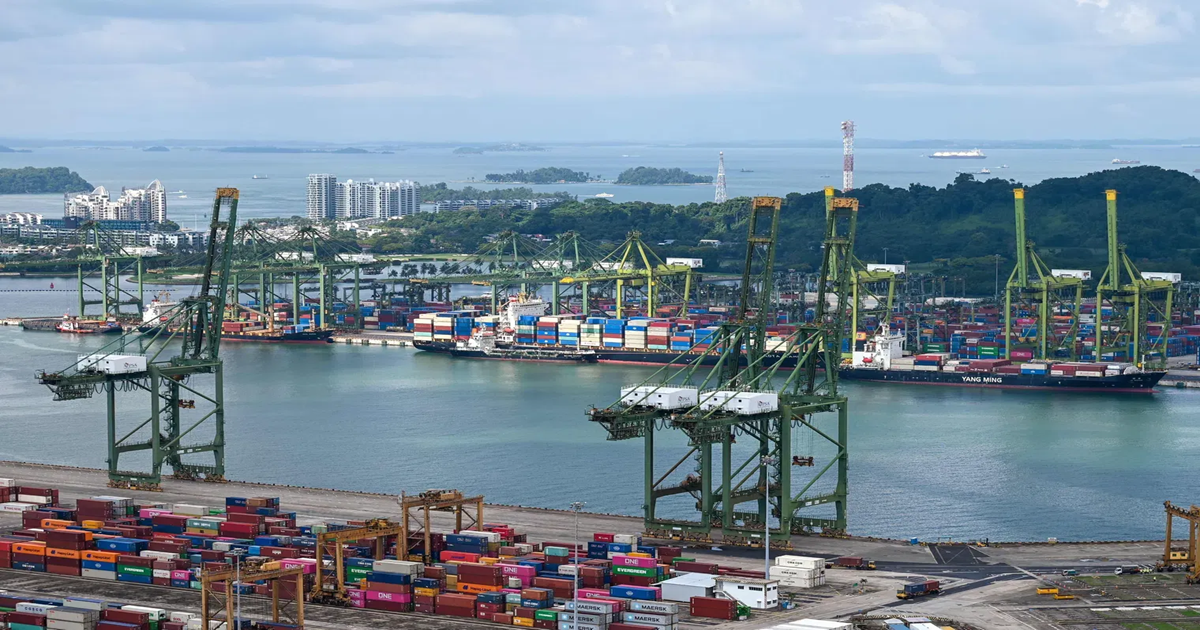: Singapore’s role as commodity hub increasingly crucial amid rising geopolitical tensions: market watchers

AS GEOPOLITICAL tensions divide the world, connector countries such as Singapore are playing an increasingly crucial role in supporting global trade systems for the commodities sector, market watchers told The Business Times.
The sector, these industry players say, is particularly susceptible to the disruption of trade and economic partnerships.
Bernard Aw, chief economist for the Asia-Pacific at trade credit insurance and risk management company Coface, highlighted that rising geopolitical tensions have caused major commodity markets to fragment.
“Restrictions on commodity trade surged in 2022, much more than those restricting the trading of other goods. Agriculture and mineral commodity sectors saw the largest increase in trade interventions,” he noted.
He added that commodity markets have become more integrated since the end of the Cold War, due to the liberalisation of economic policy by hyper-globalisation. A reversal of that, on top of the difficulties in switching supply sources, puts the sector in a vulnerable position.
Market watchers noted that the number of trade restrictions has more than trebled since 2019. The severity of such regulations has also increased amid simmering geopolitical tensions.
Liu Chee Wei, head of markets for Singapore and Asean at Standard Chartered (StanChart), said that policies have evolved from tariffs and export quotas to outright sanctions, and from targeting specific asset classes to targeting a combination of asset classes and entities.
Most susceptible to trade disruptions
Guy Wolf, global head of market analytics at financial services platform Marex, said that bulk commodities such as iron ore are likely to be the most susceptible to trade restrictions. Their lower value per tonne makes them more sensitive to the cost of delivery logistics, relative to high-value commodities such as copper and nickel.
Traditionally, crude oil, copper and soybeans are the most sensitive to a US-China trade war, said John Chen, StanChart’s regional head of commodities sales for the East. Should trade restrictions between the two economies escalate, the outlook for these commodities would be bearish, he added.
One commodity that would be largely unaffected by US-China trade restrictions, however, would be crude palm oil (CPO) – the largest agri-commodity produced in South-east Asia.
Chen said CPO prices are expected to be more resilient, as the bulk of physical consumption is in India and China.
However, Coface’s Aw noted that current trade restrictions on Russian fertilisers have affected crop productivity for the agri-commodity sector in South-east Asia in general.
Navigating regulatory environment
While global demand for commodities remains high despite mounting trade tensions, commodity players need to navigate the increasingly complex regulatory landscape nimbly.
Joel Lange, executive vice-president and general manager of risk and research at Dow Jones, said that businesses should monitor broader regulatory issues that can affect market dynamics.
“Whatever the result of November’s election (in the US), it is clear that sanctions, export controls, trade restrictions and broad supply-chain laws are tools that governments are increasingly willing to use to further foreign and security policy.”
He noted that businesses are particularly concerned about the evasion of sanctions as national security becomes a policymaking focus, prompting a need to better understand counterparties and the global movement of goods.
The complexity of sanctions and trade restrictions will increase the costs of compliance for commodity traders and banks alike, but the dislocation in prices could also present profitable trading opportunities.
Reshmi Khurana, partner and managing director of AlixPartners, said: “The type of commodities in demand may shift, but it won’t go away, which means there will always be opportunities for a robust, nimble and tech-driven commodities supply chain.”
Singapore as trade powerhouse
StanChart’s Liu noted that Singapore’s strategic location, comprehensive logistic and regulatory infrastructure, as well as its participation in various trade agreements, has put the country in a position of strength as global trade flows reroute.
“We will also see more demand for legal and compliance expertise from Singapore to navigate the various trade restrictions put in place by the different markets,” he said.
Dow Jones’ Lange highlighted the Republic’s increasingly important role as a leading trade powerhouse in the region.
“With the rising importance for markets to diversify their supply chains, the city-state could offer a reliable and neutral base for markets to weather uncertainty, especially as entities look to mitigate geopolitical risks,” he said.
As a key gateway between the East and the West, Singapore has the world’s second-busiest port by volume, going by Bloomberg’s trade tracker released on Sep 30.
Liu said: “Many global traders have decided to move their trading operations to Singapore to leverage the country’s strong ecosystem of a robust regulatory framework, availability of international talent, as well as access to liquidity and financing solutions.”
He cited the tax incentives offered under the Global Trader Programme by Enterprise Singapore (EnterpriseSG) as a strong value proposition.
Currently, about 400 global traders across three key commodity sectors – agri-commodities, energy, and metals and minerals – operate under the programme, said Lee Pak Sing, EnterpriseSG’s assistant managing director for trade and connectivity. These traders contributed to US$1.8 trillion in international commodity trade flows in 2023.
He said: “In the last three years alone, there were around 35 new entrants (under the Global Trader Programme), including companies from markets farther afield, such as Ecopetrol from Colombia and MEGlobal from Kuwait.”
A dense network of global traders here allows businesses to source from alternative markets directly from Singapore when needed, which is “critical in times of market volatility and supply-chain disruptions”, he added.
Source: The Business Times © Singapore Press Holdings Limited. Reproduced with permission.

